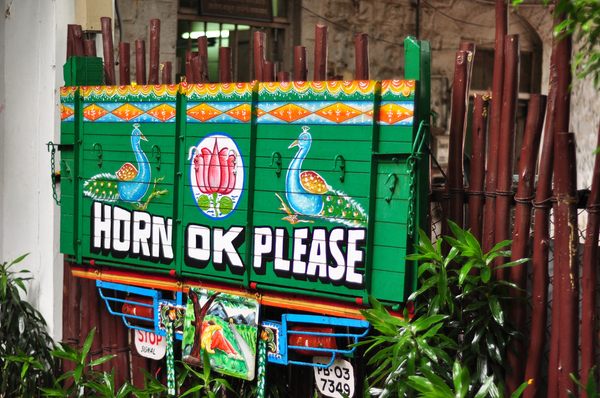If you’ve travelled on Indian roads, particularly on long routes, you’ve likely seen trucks adorned with various forms of poetry, slogans, quotes, and phrases on their backsides.
Among the well-known quotes and poems, the phrase “Horn OK Please” is frequently seen on many trucks. This catchy phrase has captured the attention of many people over the years.
This phrase gained such popularity that a Bollywood movie was made about it a few years ago. However, according to regulations, there is no requirement to display this phrase, nor does it hold any official significance. Despite its popularity, many people may not be aware of the possible reason behind its widespread use.
Reason For Writing ‘Horn Ok Please’
There are several possible explanations for the use of “OK” in the middle of this phrase. One theory dates back to World War II, when a global diesel shortage led trucks to use kerosene, a highly flammable substance. To warn vehicles behind them to keep a safe distance, trucks had “On Kerosene” written on their backs. Over time, this warning gradually evolved into the abbreviation “OK.”
The ‘Horn Ok Please’ phrase has also been part of a marketing strategy of TATA’s Ok soap. TATA, a brand mostly associated with steel, trucks, hospitality and even salt, had almost zero presence in the soap market back then.
In a bid to enter and disrupt the soap market, which had Lifebuoy positioned as an affordable brand, it was a curious marketing strategy for OK soap to take on Lifebuoy with the affordable common-person tag.
What ‘Horn Ok Please’ Phrase Could Likely Means
“Horn OK Please” could also likely mean signal by honking before overtaking a vehicle. In other words, truck drivers are telling the vehicles behind them to honk if they want to pass. In the past, many trucks didn’t have side mirrors, so drivers could not see the vehicles behind them. This phrase written on the back side of the truck helped in informing the driver of the approaching vehicles, allowing them to give way.
👉 Click here to read the latest Gujarat news on TheLiveAhmedabad.com



